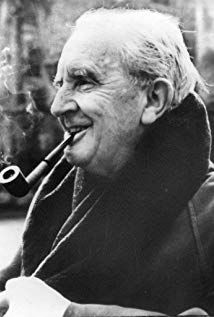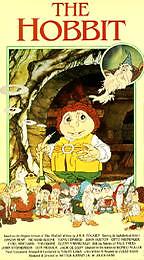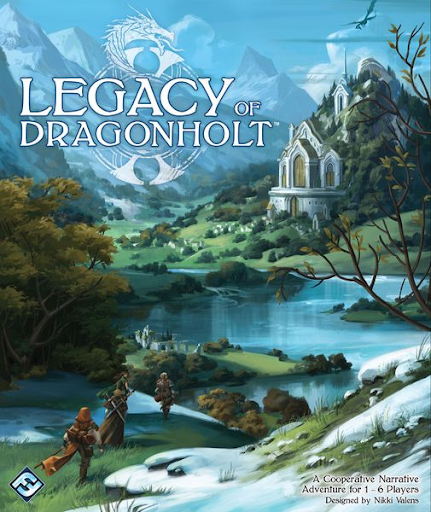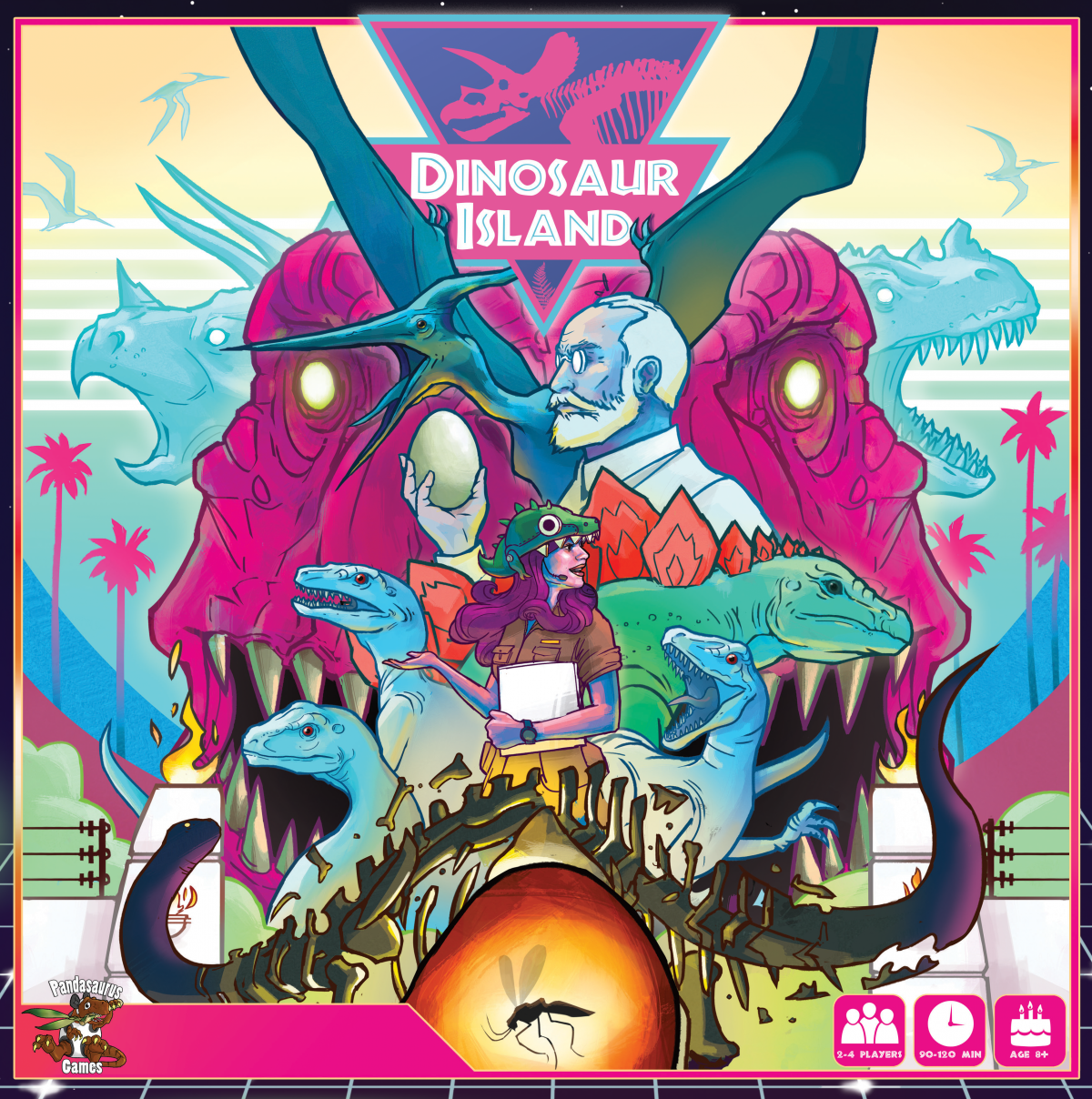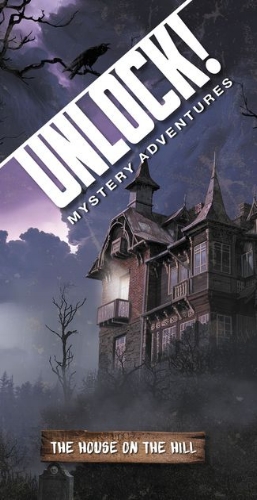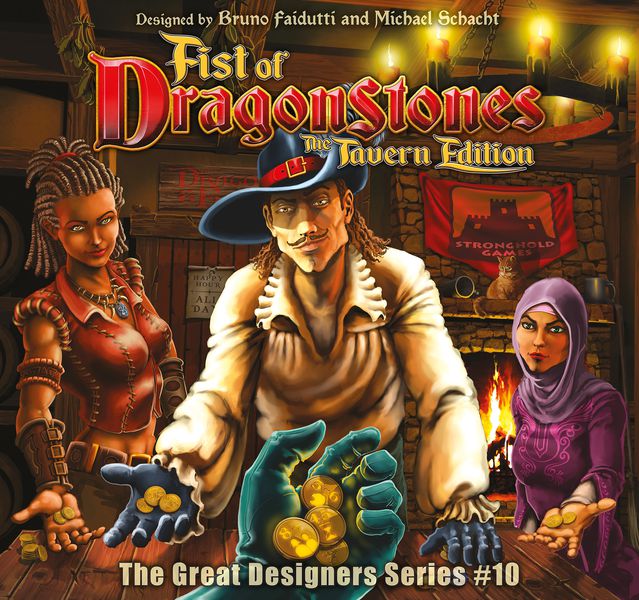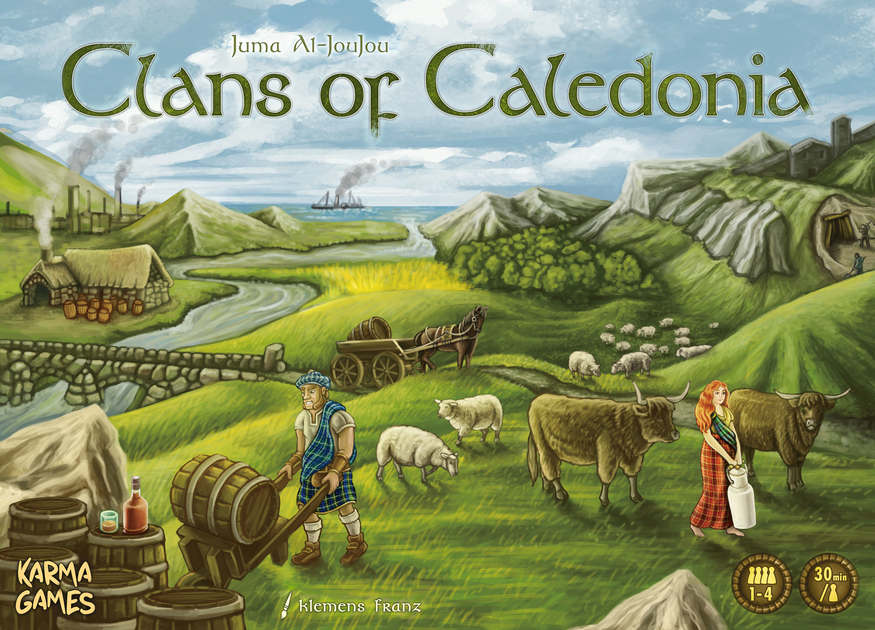Happy Birthday Mr. Tolkien
By Jack Eddy - January 3rd, 2019
JRR Tolkien died 13 years before I was born, yet I can’t think of a single creator who has had such profound and intimate impact on my life. I mean, he doesn’t get all the credit, the orcs and elves and goblin grenades that have captured my imagination since early childhood have been told and retold by numerous creators that I love, but he is the progenitor of modern fantasy, and the catalyst through whose work (and adaptations of his work) set me upon this nerdy journey.
Who knows. I might have been really into baseball or something if it weren’t for my uncle and his damn VHS player.
An Unexpected Interest
Spending my early years overseas, coming to the States meant visiting family. I’d spend a couple days with my grandparents, hop over to my aunt’s, then best of all, go hang out with my uncle on his houseboat. Steve Eddy, like myself, was the weirdo among his siblings and parents. Into sci-fi, fantasy, technology, and the squishier things that are less grounded in reality.
During one visit, when I was about 3 or 4 years old, we ended a day watching a movie, which just so happened to be the 1977 Rankin & Bass adaption of The Hobbit. It blew my effing mind.
I’d seen He-Man, I knew what was up with The Wizard of Oz and The Never Ending Story, but this was like a fully realized world the likes of which I had never seen. It was just taken as a given that Middle Earth worked a certain way, hardly deserving exposition because the characters felt so real; and if the characters believed in their world, I could believe it too.
Lines like “I know that Sword! It is Glamdring, the Foe-Hammer!” or “I am Gandalf, and Gandalf Means Me” were permanently etched in my mind, and I was hungry for more.
It wasn’t until years later that I finally read The Hobbit, being that my dad (who did his best as a loving single parent of a very strange kid) had little to no interest in fantasy. For him, Star Wars was OK, but that “force” nonsense really brought the whole thing down, and The Beatles were a much better band when they weren’t trying to be so “weird”. Thus, it wasn’t his guiding hand that led me to fantasy classics, sticking largely to traditional modern adventure stories at bed time. But when I was old enough to do my own research and ask for them by name he indulged me by getting me the classics, or more often, getting me access to TV and video games featuring the stuff I craved.
Redwall, Flight of Dragons, Thundarr The Barbarian, Secret of N.I.M.H., these were my rockstars. Soon, this led to HeroQuest, which was both my entry point to tabletop gaming and the idea of actually creating worlds of my own through it’s fantastic “create your own map” page in the back of the campaign.
HeroQuest led to Magic: The Gathering, Magic led to the Brothers War novels (based on the Urza / Mishra Artificer Wars that set the stage for much of Magic’s early setting), then finally, I went after The Hobbit and The Lord of the Rings.
To Dungeons Deep & Novels Old
I ate up the Hobbit. Given that I already knew the from watching the cartoon about a billion times, I was ravenous for the details, and Mr. Tolkien indulged (Or I guess I should say “Professor Tolkien”, though that feels too stuffy for the man). One of the best things about the Hobbit is that Tolkien set out to tell a fun fairy story narrated as an oral tale, full of embellishments and asides conveying his whimsy and delight. But in spite of himself, Tolkien could not let his fascination with myth and lore stay by the wayside.
Though he never intended for The Hobbit to be part of his Silmarillion Mythology, Tolkien self-indulgently made hints to it. From referring to Gondolin to the Arkenstone itself, which bears striking resemblance to the titular Silmarils. It was only later that he went back, in one of the first notable instances of “retconning”, did The Hobbit fit implicitly within the Legendarium. This massaging for canonical cohesion was largely due to the difficult process of writing The Lord of the Rings, when he found that the myths and legends of the world had transformed into concrete history within the universe, and thus The Lord of the Rings and to a lesser extent The Hobbit, were officially part of the tale of heroes like Turin Turambar, Earandil, and The Lady Luthien.
Flash back to me. I couldn’t get through it. My first 3 attempts at reading the Lord of the Rings failed miserably. No, it wasn’t too slow, no it wasn’t to formal. Honestly, it was too big. Every single page is full of layers to explore, hints of hidden depth both intentional and unintentional, such that my 13 year old brain could not fully grasp it. The surface level story was enchanting, but I was too distracted by the layers to explore, and I’d dig deep and greedily, until the motivating plot that propels the reader forward lost all momentum.
Yet I treasured them. The Lord of the Rings sat on my shelves throughout my early teens as though they were dictionaries to be referenced from time to time. I’d open random pages, dive into the appendices, and sit at my built-in-desk drawing ring-wraiths till the cows came home.
The Hobbit though, was another story.
It Is Precious To Me
My first copy of the Hobbit came from a scholastic book fair. Those familiar with book fairs from mid 90s may even recall my paperback edition, with a lifelike illustration of the Riddles in the Dark chapter set against a black background. Interestingly, the depiction of Bilbo (maybe it was even a person modeling for the role?) looks less like a hobbit and more like Marc Addy in Viva Rock Vegas.
Anyway, as I said, I tore through this book again and again, to the point of destroying it beyond the point that any mortal tape could mend. Enter my mom.
My mother was largely out of the picture in my life. Tragically, she battled with mental illness and addiction for the majority of her adulthood, though there were periods of sobriety where I could and would visit her.
As I said, I felt like misfit my family. I didn’t look like them, I didn’t talk like them, and my greatest passions were at best mild curiosities. But the first time I visited my mom as a teenager, which was also the longest extended period that I had spent with her since my parents divorced when I was 6 years old, I found her shelf of books. On it, low and behold, was a copy of the Hobbit.
This beautiful, notebook sized hardcover featured incredible illustrations, both the original illustrations by Tolkien and fantastic “new” interpretations of his work. I was astonished that that my mom had read the book, let alone cared enough to own a copy. This created a bond and a level of understanding with which I could better understand and relate to her, creating room for empathy in the heart of a lonely child bitter about his mother’s absence.
I wish I could say that this was the blossoming of a tight relationship, but over the following summers, her struggles consumed her, and between the ages of 15 to 17 she was not stable enough for me to visit. At 18 years old I saw her for the last time, choosing to go as an adult of my own volition, taking my wife (then girlfriend) to visit her. It was a good visit, though a brief distraction from the mutual sadness we held for the state of our relationship.
Shortly after that she went off the grid, occasionally reappearing in fits of madness, calling from homeless shelters or strangers’ houses, refusing help and offering no information. Her paranoid delusions, schizophrenia, and drug addiction caused her to repel anyone who offered to help, and she died alone. My brother and I scattered her ashes in Alaska, the last place where we were all together; the last place that for her resembled home.
Outside of the photographs saved by relatives, I have three mementos of my mother. The ID which she had on her at the time of her death, the brass tag used to identify her ashes, and a hardbound copy of The Hobbit, inscribed on the inside “July 3, 1998 To Jack With love, From Mom.”
Battered and worn from read-throughs and panic attack comfortations, there is not a single physical possession that I hold more dear.
The Whole Story
Well, after that tragic story that I didn’t expect to write when I set out to post a nice little summary of my experience with Tolkien’s works, we need to go rewind to just after my mom gave me her copy of the Hobbit.
It wasn’t long after that, maybe 2 or so years, that I heard rumors of an upcoming live-action adaption of The Lord of the Rings, from the Dead Alive guy no-less. I didn’t really understand what that meant, because it really felt impossible to tell the story in a single movie. Stranger still, I heard that I could watch the preview (this i long before they were called trailers) on the internet.
Ho-ly-Shit.
The Fellowship of the Ring trailer is perhaps the first thing that opened my eyes to the power of the internet, and I couldn’t believe what I was seeing. No longer were websites just a source of Final Fantasy 3 rumors, now it was a means to consume media. But that pales in comparison to when the film came out.
I think I saw Fellowship 3 times in the theater. It was wonderful, of course, but also strange. I knew the characters so well from reading the Hobbit and referencing lineages in the Lord of the Rings, but truthfully, I didn’t know the thrust of the story. I mean, of course by this point I had seen Ralph Bakshi’s The Lord of the Rings and the Rankin & Bass Return of the King, but those are disjointed works, again, acting as little windows into the world rather than a continuous narrative. It was the movies that contextualized the tale, which finally convinced me to read through the books from beginning to end.
Including a single listening of the audio book, I’ve read through the Lord of the Rings three times since then. While this may be less than some, it’s generally more than others. Additionally, I dived into anything else I could even tangentially related, from the incredible 1981 BBC Radio Adaption, to the Lord of the Rings SNES game where Gandalf struts like a 1970s pimp.
Pimp-walk Gandalf images unavailable. You’ll just have to trust me on this one.
But more than anything, I became enamored with the man himself. Tolkien’s letters, his struggles, the accounts of his peers, the story of the inklings, all of it felt as important to the creation of this universe as the hints within the text are to it’s fictional history.
Most recently, I’ve started engaging with the Mythgard Academy and listening to their fantastic Exploring the Lord of the Rings podcast, along with it’s associated ilk. These sessions are hosted by Corey “The Tolkien Professor” Olsen, an unparalleled resource who leads his lessons with purpose, whit, and charm. Suddenly, I was engaged in hours upon hours of open ended seminar style discussion both about the work, its creation, and its author; I found a welcoming home.
There and Back Again
As I alluded to earlier, this post was never meant to be this long. I really just wanted to sit down and write a nice summary of the importance of Tolkien to my life, and yet it became something altogether quite different, but here we are.
I can’t think of any creator that has been so persistently felt throughout the many different chapters of my life. Not only did he directly create some of the most meaningful stories that I’ve read, shaping my views on charity, adventure, compassion, empathy, pity, and the importance of a good troll-song, but his impact on the multitudes of other creators that further informed my character is immeasurable. It’s hard to imagine HeroQuest, Magic: The Gathering, Harry Potter, A Song of Ice and Fire, hell, even Led Zeppelin, without some of the foundational DNA leading in some way back to Mr. Tolkien's works.
And now, as of the time of writing this, I am reading the Hobbit to my son for the second time, the first being when he was an infant, as a way of gently soothing him to sleep, and now, as a boy of four years old, it’s an adventure story full of perils, mystery, and magic.
Some people tend to deify Tolkien, viewing him as some self-serious and altogether crabby stick in the mud, who must be given the same sort of reverance that would be given to a religious leader or a particularly strict, but altogether brilliant, professor.
Instead, I think of him as a warm, principled man who loved to laugh over a pint with his friends, who read created fairy stories for his children, and had a thing or two to say about that Snow White movie he saw with his pal C.S. Lewis. Because that’s who he was to me; a warm presence inviting me to experience things that I couldn’t find at home, who gave me a sense of belonging to a woman who I desperately sought a connection to, and who narrated a story with whit and character akin to the way that I delight and entertain my son.
He died 13 years before I was born, but more than any other creator, our relationship through his work is real and important. He has served as a mentor, a leader, and a friend. Happy Birthday Mr. Tolkien.
Want to see more? Check out some of our recent written reviews:

